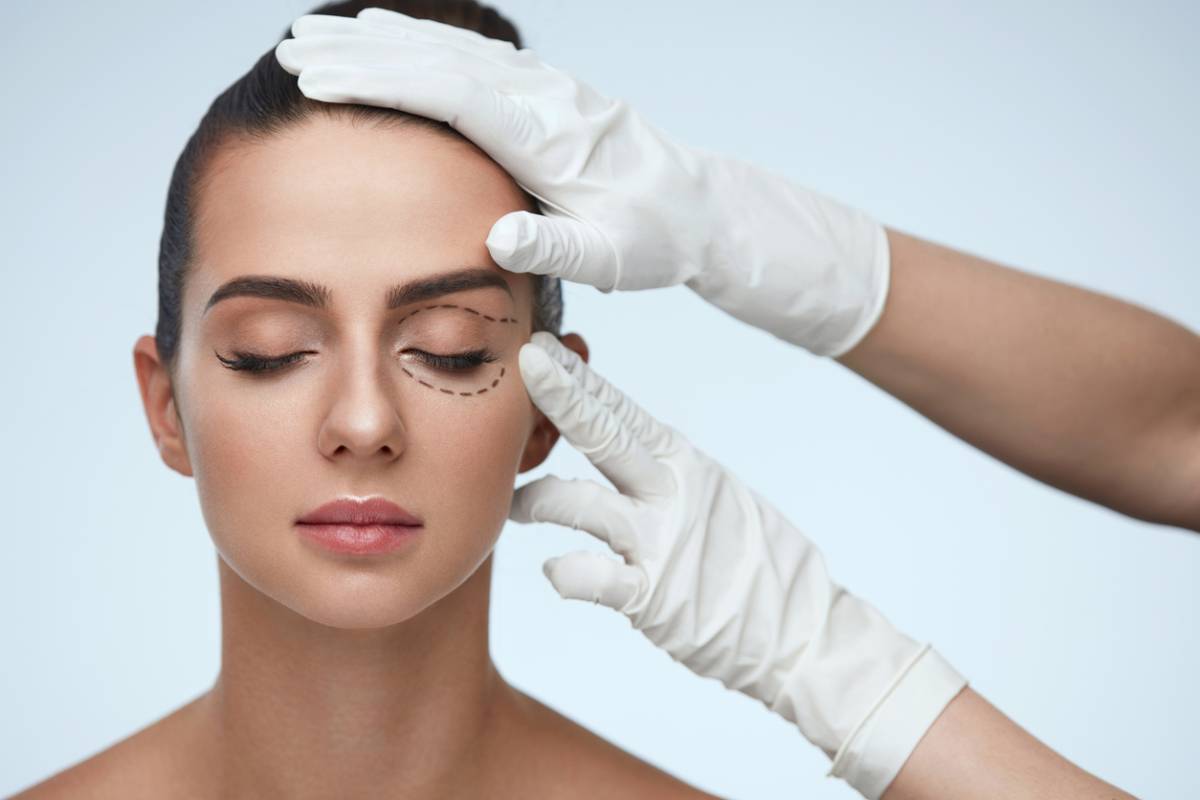Undergoing any type of operation can be a serious matter, and not one to take lightly. This goes for plastic surgery operations as well, so it’s good to screen the physician and clinic that you’re considering prior to committing to any complex or expensive operation. Here is a list of 12 questions to ask your eyelid surgeon during a consultation prior to proceeding with any procedure. These questions can help you determine whether you’ll be in good hands from an accredited individual or institution.
12 Questions To Ask Your Eyelid Surgeon During A Consultation
1. Have you been trained specifically in plastic surgery?
Determining whether someone is a specialist can give you an idea of whether they have the necessary skills to perform your desired operation safely and smoothly.
2. How many years of plastic surgery training have you had?
Generally speaking, more experienced surgeons will have greater amounts of expertise in the procedures that you might be looking to obtain a procedure in. Many patients come to us for revision eyelid surgery from an inexperienced surgeon.
3. Are you board certified by the American Board of Plastic Surgery or American Board of Ophthalmology?
The American Board of Plastic Surgery or American Board of Ophthalmology are organizations dedicated to maintaining high standards in regard to the practices, education, and deployment of plastic surgeons and ophthalmologists in the United States. A surgeon who is board certified will have met a number of criteria and tests with respect to their procedures and practices.
4. Am I a good candidate for this procedure?
A good plastic surgeon will be able to inform a potential patient on whether they are fit to receive the manner of treatment that they are petitioning for. In the same vein, they would be able to inform someone whether a procedure would be too risky or hazardous, depending on the patient’s medical history.
5. Where and how will you perform my procedure?
Physicians should be able to inform a potential client on the details of the procedure in question. Best medical practices include disclosure of the kinds of details.
6. How long of a recovery can I expect, and what kind of help will I need during my recovery?
Knowing how long the recovery period will be can help you plan it out, allowing you to take the necessary measures to ensure that your recovery is swift, sure, and safe. Failure to take these details into account can result in disruptions to both the impact of the surgical recovery and other parts of the patient’s life.
7. How are complications handled?
Disclosure of these kinds of details can give the patient peace of mind as they prepare for both the procedure and the ensuing recovery period. A quality board-certified physician will have a plan in place to handle the possible complications that can arise during an operation.
8. What are the risks and complications associated with my procedure?
Knowledge of the possible complications surrounding a procedure will give a patient a greater amount of information regarding the operation, and allow them to more fully grant their informed consent surrounding the events to follow.
9. How can I expect my eyes to look over time?
This information can help give a patient a realistic set of expectations regarding the upcoming changes in appearance. Helping to provide a timeline in particular in relation to how one’s eyes will look over the course of the recovery period can help a patient track their healing process, and soothe potential anxieties over how that process will impact their appearance.
10. What will be expected of me to get the best results?
This is another question that can assist a patient in preparing adequately for their upcoming procedure, and elect them as an active collaborator for their physician, which can help both patient and doctor feel more secure about the operation that is to take place.
11. Do you have hospital privileges to perform this procedure? If so, at which hospitals?
This is a relevant question if the patient has other trusted medical personnel that they need to consult at a particular hospital, or if their insurance grants certain privileges and requirements at certain medical facilities. Performing an operation in a familiar space can also inspire a sense of comfort and safety for a prospective patient.
12. Do you have before-and-after photos I can look at for this procedure, and what results are reasonable for me?
This question can help inform you towards how the surgery you’re undertaking will impact you on a personal level, and subsequently set up a realistic set of expectations surrounding the results of your operation. Contact our expert Leyngold cosmetic surgeons today.

